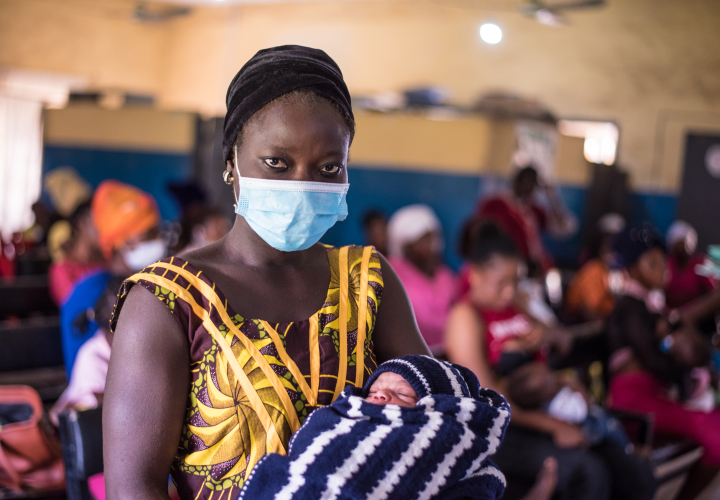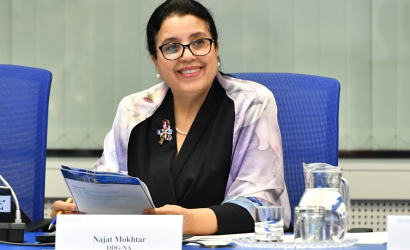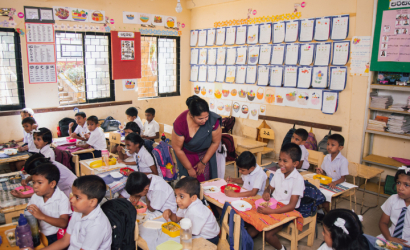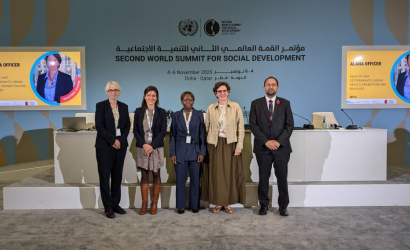Poor diets and malnutrition are costing Africa over USD 25 billion, an amount that exceeds the GDPs of many countries on the continent1. And, progress towards internationally-agreed nutrition targets2 in the region is just about as variable as the continent’s ecosystems from the desert in the Sahara to the rainforest of the Congo Basin. Some African countries (e.g. Côte d’Ivoire3, Ghana4, Kenya5) are making vast strides in terms of stunting6, yet many others are off course7, and the numbers are even rising in northern Africa8. According to the 2021 Global Nutrition Report9, several (28) African countries are on track to meet the global target for overweight among children under five years old. However, the newly released 2022 report on the State of Food Security and Nutrition in the World (SOFI) indicates that under5 overweight is markedly deteriorating within the majority of countries in southern Africa. Other manifestations such as anaemia among women of reproductive age continue to be pervasive, in this case, surpassing the critical public health threshold of 40 percent.10
Despite these variances, African Union (AU) members are united and determined to slash levels of malnutrition in the region. African leaders proclaimed 2022 as the Year of Nutrition for Africa, with a theme of “Strengthening Resilience in Nutrition and Food Security on The African Continent: Strengthening Agro-Food Systems, Health and Social Protection Systems for the Acceleration of Human, Social and Economic Capital Development”. The announcement came just before the war broke out in Ukraine, which has compounded the ongoing triple crisis (climate change, conflict and the COVID-19 pandemic), including the associated hikes in food and energy prices around the world. These intersecting crises give impetus to the AU’s Year of Nutrition.
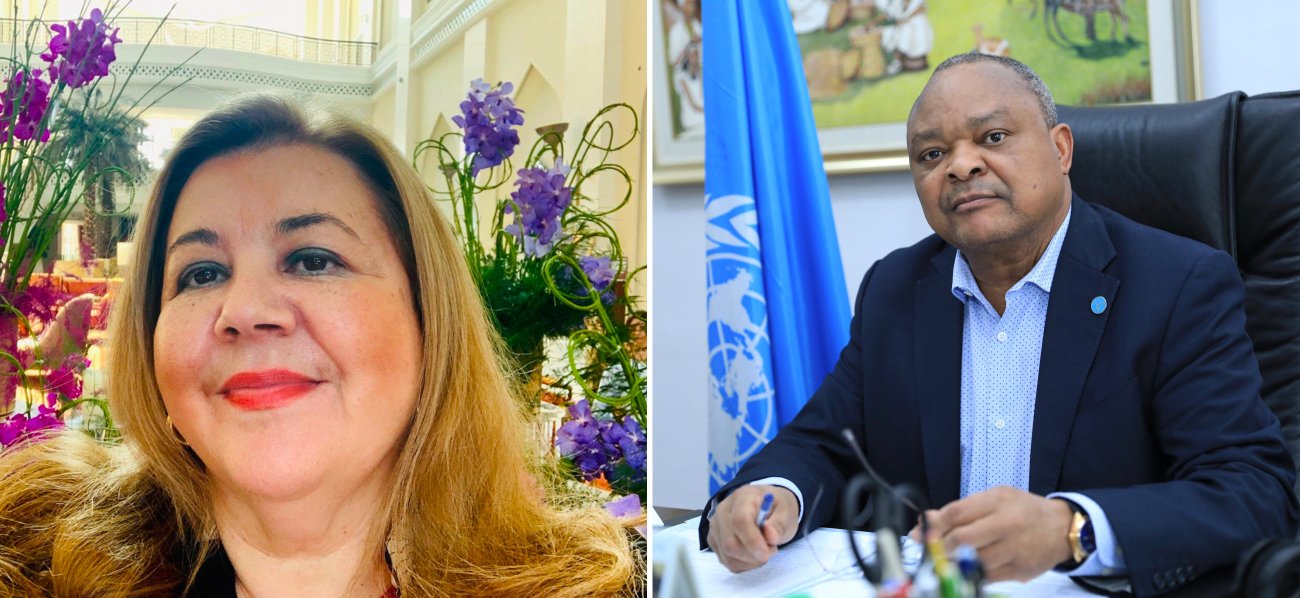
In this interview, Aurelia Patrizia Calabrò, UNIDO Representative and Director of the Regional Hub in Ethiopia, and Chimimba David Phiri, FAO Subregional Coordinator for Eastern Africa and Representative to the African Union Commission (AUC) and the United Nations Economic Commission for Africa (UNECA) tell us about how the United Nations is supporting the AU’s Year of Nutrition and the opportunity this initiative brings during these challenging times. Aurelia currently serves as the chair of the UN Liaison Team (UNLT) to the AU, while David is the main focal point for the UNLT sub-group specifically working on the ‘Year of Nutrition for Africa’.
Q1: A number of countries, including African nations, came forward with bold nutrition commitments at the Tokyo Nutrition for Growth (N4G) Summit and 2021 Food Systems Summit. How can the United Nations leverage the AU’s Year of Nutrition to help African governments translate these commitments into action?
Aurelia: The four “Levers of Change” (i.e., Human Rights; Innovation; Finance; Gender Equality and Women’s Empowerment) that have been identified as having the potential to bring about significant progress, on both food systems transformation and [the Sustainable Development Goals] SDGs are areas in which the UN works. Therefore, [there is scope to] design programmes that address nutrition and food security with components on these major thematic areas. UNIDO, for instance, in the Integrated Agro-Industrial Park (IAIPs) Programmes, emphasizes access to finance, women and youth empowerment to address food and nutrition security as well as job and wealth creation in rural areas. In addition, developing strong inter-regional and inter-sectoral collaborations can create strong linkage[s] in the supply chain of nutritious food production and processing, including fortification.
David: By declaring 2022 as the Year of Nutrition and Food Security (YoNFS), the African Union is maintaining the momentum started by the United Nations through the Decade of Action on Nutrition (2016–2025). The most challenging part at the country level remains transforming political commitments into action. In relation to this, some leverage points for the UN include:
- Provision of technical support to draft national policies, strategies, and plans to operationalize the political commitments and support the domestic resource mobilization agenda to make the commitments sustainable;
- Support to unleash the potential of parliamentarians in their role as national budget approvers and holding the executive to account for resources and implementation to accelerate the elimination of hunger and malnutrition. For example, sub-regional parliamentary alliances for food security and nutrition in Eastern and Central Africa are influencing policy decisions that prioritize resource mobilization and allocation towards food security and nutrition initiatives in individual member countries and regional economic communities (RECs).
- Generation of data and guidelines on food-based approaches to improve nutrition, including on food composition and food loss/waste, nutrition and dietary assessment and indicators, and Food-based Dietary Guidelines (FBDGs); and
- Strengthen government capacity to evaluate and monitor the nutrition situation, analyse options and implement agricultural and food systems policies and programmes that impact positively on nutrition.
These are just some examples.
Q2: How is the AU’s Year of Nutrition in Africa prompting UN agencies to align around what looks like a busy agenda? Do you have any suggestions on how to improve UN collaboration in relation to the UN’s support to the AU on nutrition?
Aurelia: UN Country Teams currently coordinate programmes, including the AU Year of Nutrition, through the UN Sustainable Development Cooperation Frameworks (UNSDCFs). Agencies could include key nutrition indicators in the CFs, having clearly defined them in a participatory approach with the relevant stakeholders at the country level.
David: Coherence is crucial among the United Nations agencies to avoid duplication of efforts and to efficiently use resources to address food and nutrition insecurity. In the interest of facilitating a coordinated UN support towards the implementation of the roadmap developed by the African Union and partners, several UN liaison offices to the African Union established an ad hoc inter-agency task force on the AU’s theme for Year 2022 to engage, plan and propose coordinated actions and response to all the activities. The task force is led by FAO and also comprised of IFAD, UNICEF, UNIDO, WFP, WHO, UNWOMEN and UN-HABITAT.
The UN Liaison Team to the African Union in Addis Ababa (an information-sharing platform grouping all representatives of UN agencies, funds and programmes) and the Africa Regional Collaborative Platform (comprised of all regional directors of the UN Development System in Africa) are strategic platforms that can also facilitate UN inter-agency coordination, including support for the implementation of the AU Year of Nutrition and Food Security.
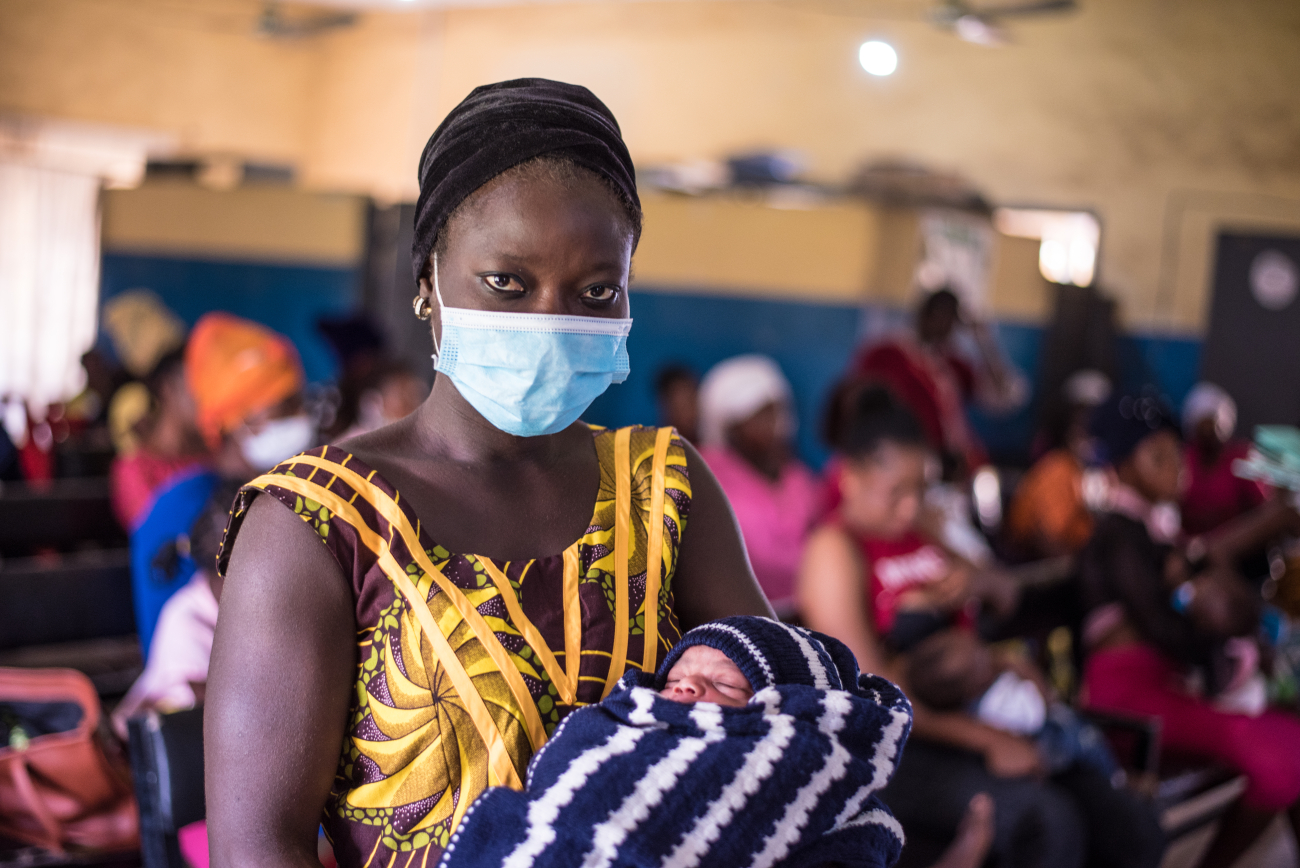
Q3: How can an immediate response to the current food and nutrition crises be accelerated and scaled up under the Year of Nutrition in Africa?
Aurelia: This should start with investment channelled into the agriculture and food sector to address the food shortages due to low production and inadequate storage facilities to curtail post-harvest losses. The ‘Year of Nutrition for Africa’ also provides an entry point to strengthen food industries through supporting the improvement of food processing value/supply chains, certification and food safety regulatory framework[s]. The existence of the inter-agency task force on the ‘Year of Nutrition for Africa’ is helping to accelerate increased collaboration for the response to the current food and nutrition crisis, especially tools like newsletters and advocacy events assist in keeping the momentum.
David: The UN and humanitarian and development actors are working to support countries to curb malnutrition levels and improve food security and agriculture in Africa. One of the opportunities to accelerate actions to improve nutrition is the African Continental Free Trade Area (AcFTA), which can provide a platform to address the immediate response to the current food and nutrition crises. It is instrumental to use regional blocks to facilitate the quick movement of food from one region to another. Therefore, with the AcFTA, the free movement of goods between countries will be essential to stop the inflation in the cost of food due to conflicts, climate change, pandemics and other challenges the continent will face. In addition, the Year of Nutrition and Food Security can be leveraged to strengthen the food sovereignty of African states by reducing food imports and increasing local food production [of nutritious foods], helping to shield it from the effects of such global crises. Building the resilience of communities against food and nutrition security threats over the longer term is another crucial aspect of this AU initiative. Countries will need to invest in agriculture and related sectors (e.g. water, health and education) to reduce vulnerabilities and build capacities to withstand shocks from climate change, conflicts and economic downturns and slowdowns.
Q4: In your view, what are three factors that will contribute to the success of the AU’s Year of Nutrition (YoN)? What will it take to sustain the benefits of the YoN beyond 2022.
Aurelia:
- Participation of the private sector in the continent’s food industry, including food fortification, is one success factor. There is the need for a framework to incentivize and strengthen the role and capacities of African firms in food processing;
- Strengthening the capacity of MSMEs [micro-, small-, and medium-sized enterprises] in value addition and food processing to ensure the availability of safe and nutritional food; and
- Improving the capacity of production and processing of neglected nutritious foods. One example of how the UN is coming together to support this is an FAO/UNIDO programme in Ethiopia that enhanced the value chain of a local variety of moringa. LEARN MORE
David:
- One of the ways to contribute to the success of the AU’s Year of Nutrition and Food Security will be the capacity development and strengthening of the African Union Commission. FAO is seconding a nutrition officer to work with all the departments involved in food security and nutrition matters at the African Union. By doing so, the secondee will assist the AU departments in coordinating, aligning and delivering together on the nutrition agenda.
- To sustain the benefits beyond 2022, continuous collaboration among the UN agencies is necessary through the UNLT, the UN Nutrition platform and national committees.
- From FAO’s side, the focus is on ensuring better nutrition through promoting healthy diets and safe food for everyone, protecting the most vulnerable, reducing food loss as well as promoting transparent markets and trade.
Endnotes
https://glopan.org/sites/default/files/document-files/Foresight_Africa_Paper.pdf
These include; low birth weight; exclusive breastfeeding for the first six months of life; under5 stunting/wasting/overweight; anaemia among women of reproductive age; and adult obesity.
https://globalnutritionreport.org/resources/nutrition-profiles/africa/western-africa/ghana/
https://globalnutritionreport.org/resources/nutrition-profiles/africa/eastern-africa/kenya/
https://globalnutritionreport.org/resources/nutrition-profiles/africa/
Ibid
FAO, IFAD, UNICEF, WFP and WHO. 2022. The State of Food Security and Nutrition in the World 2022. Repurposing food and agricultural policies to make healthy diets more affordable. Rome, FAO. Available at https://www.fao.org/documents/card/en/c/cc0639en.
https://globalnutritionreport.org/resources/nutrition-profiles/africa/
Ibid
